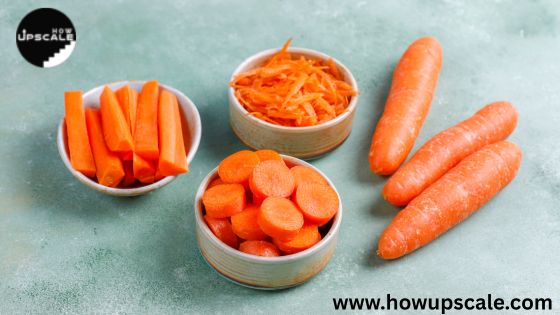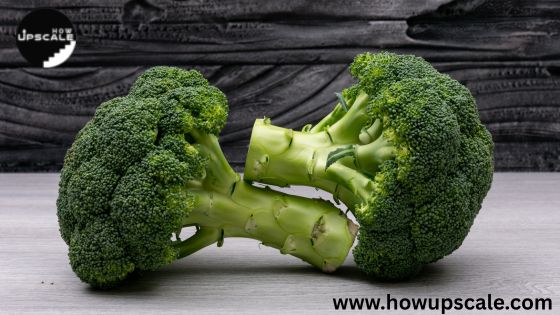Pistachios Benefits: Nutrition Facts and Health Benefits and More

Pistachios are not just tasty snacks they are powerful superfoods packed with nutrients. Loved worldwide for their crunchy texture and nutty flavor, pistachios offer a wide range of health advantages. Whether you’re looking to improve heart health, lose weight, or build muscle, pistachios can be your perfect companion.
At How Upscale, we’ll explore the amazing Pistachios Benefits, break down Pistachios Nutrition, and highlight how Pistachios Protein and Pistachios Calories make them ideal for every diet.
What Are Pistachios?
Pistachios are small nuts that grow on trees in dry, sunny climates. They belong to the cashew family and are one of the oldest flowering nut trees. People have been enjoying pistachios for thousands of years from the Middle East to the modern grocery store.
These green nuts are more than just snacks. They are a rich source of essential nutrients.
Pistachios Nutrition Overview
Let’s take a look at the impressive Pistachios Nutrition profile. A 1-ounce (about 49 kernels) serving of pistachios contains:
- Calories: 159
- Protein: 6 grams
- Fat: 13 grams (mostly healthy fats)
- Carbohydrates: 8 grams
- Fiber: 3 grams
- Rich in vitamin B6, copper, manganese, phosphorus, thiamine, and potassium
This nutrient-rich combination makes pistachios an energy-packed, heart-healthy snack.
Top 10 Pistachios Benefits
1. Heart Health
One of the most talked-about Pistachios Benefits is heart health. Pistachios contain healthy fats that help reduce bad cholesterol (LDL) and increase good cholesterol (HDL). They are also rich in antioxidants and phytosterols, which support overall cardiovascular health.
2. High in Protein
Looking for a plant-based protein source? One of the great Pistachios Benefits is that they are rich in Pistachios Protein. With 6 grams of protein per ounce, pistachios support muscle growth and repair. This makes them ideal for vegetarians, vegans, and athletes alike.
3. Weight Management
Despite being calorie-dense, pistachios may help in weight control. Why? Their fiber and protein content keeps you full for longer. Additionally, shelling pistachios slows down your eating, helping with portion control.
So while Pistachios Calories are around 159 per ounce, they are nutrient-dense, meaning you get more nutrition with fewer servings.
4. Good for Eye Health
Pistachios are high in lutein and zeaxanthin — two antioxidants that are essential for eye health. These nutrients help protect the eyes from blue light damage and reduce the risk of age-related macular degeneration.
5. Supports Gut Health
Another reason to love Pistachios Benefits is their impact on digestion. Pistachios are rich in dietary fiber, which promotes healthy digestion. They act as prebiotics, feeding the good bacteria in your gut.
6. Blood Sugar Control
Pistachios have a low glycemic index and are high in protein and fiber. These features help stabilize blood sugar levels. Research shows that eating pistachios as part of a meal can reduce the post-meal blood sugar spike.
7. Boosts Immunity
Among the lesser-known Pistachios Benefits is their ability to strengthen the immune system. They are high in vitamin B6, which is essential for building red blood cells and supporting immune function.
8. High in Antioxidants
Pistachios are packed with antioxidants like vitamin E and polyphenols. These compounds help protect cells from damage caused by free radicals, slowing down aging and reducing the risk of diseases.
9. May Improve Skin Health
Thanks to their high antioxidant and vitamin E content, pistachios help maintain healthy skin. They fight off oxidative stress, hydrate the skin, and may reduce the appearance of aging.
10. Improves Brain Health
Last but not least, Pistachios Benefits extend to brain function. The vitamin B6 and healthy fats found in pistachios support better cognitive function and may help prevent age-related brain issues.
Are Pistachios Calories Too High?
A common question is whether Pistachios Calories are too high for daily snacks. At about 159 calories per ounce, pistachios are not low-calorie, but they are low in empty calories.
Their mix of protein, fiber, and healthy fats makes them filling and satisfying. So even though Pistachios Calories seem a bit high, you’ll likely eat less overall due to the high satiety factor.
How Much Pistachios Protein Do You Get?
Pistachios are a top source of plant-based protein. With 6 grams per ounce, Pistachios Protein makes up about 14% of the nut’s total weight.
If you’re on a high-protein diet or looking to build muscle, adding pistachios to your meals is a smart choice. They work well in smoothies, yogurt bowls, and even salads.
Pistachios Nutrition vs Other Nuts
When comparing Pistachios Nutrition to other nuts:
- Pistachios have more potassium than most other nuts.
- They are lower in fat compared to almonds and walnuts.
- They provide more protein than cashews.
This makes pistachios a balanced nut in terms of macronutrients.
Smart Ways to Add Pistachios to Your Diet
Here are easy ways to enjoy the Pistachios Benefits daily:
- Snack on a handful between meals.
- Sprinkle crushed pistachios on oatmeal or yogurt.
- Add them to baked goods like muffins or cookies.
- Use them as a salad or soup topping.
- Blend into pistachio butter or pesto sauce.
Who Should Be Cautious?
While pistachios are healthy for most people, here are a few things to watch:
Allergies: If you have nut allergies, avoid pistachios unless cleared by your doctor.
Salted versions: Choose unsalted or lightly salted options to avoid excess sodium.
Portion control: Keep track of Pistachios Calories if you’re on a strict calorie-controlled diet.
The Role of Pistachios Protein in Fitness
Fitness lovers appreciate Pistachios Protein because it supports muscle growth and recovery. Combine them with other proteins like Greek yogurt or eggs to maximize their benefits.
You can also eat them post-workout to replenish energy and repair muscles.
Pistachios for Kids and seniors
Pistachios are great for all age groups. For kids, they support growth and development. For seniors, the nutrients in pistachios help preserve bone strength, eye health, and memory.
Crush or blend them into food for easier consumption for those with chewing difficulties.
Top Pistachios Benefits
- Support heart and brain health
- Help in weight management
- Boost immunity and digestion
- Improve skin and eye health
- Provide plant-based protein and fiber
With all these Pistachios Benefits, it’s clear that these tiny green nuts pack a powerful nutritional punch.
About Pistachios Benefits
1. How many pistachios should I eat per day?
A healthy serving is about 1 ounce or 49 pistachios per day. This amount gives you all the Pistachios Benefits without overdoing Pistachios Calories.
2. Are roasted pistachios as healthy as raw ones?
Yes, but avoid heavily salted or flavored versions. Dry-roasted pistachios retain most Pistachios Nutrition, including Pistachios Protein.
3. Can I eat pistachios on a weight-loss diet?
Absolutely. Even though Pistachios Calories are moderate, the fiber and protein keep you full, helping reduce total food intake.
4. Are pistachios good for building muscle?
Yes! Thanks to Pistachios Protein, they are an excellent snack for fitness and muscle recovery, especially when combined with a workout routine.
5. What is the best time to eat pistachios?
You can enjoy pistachios any time. As a snack between meals, they help curb hunger. Post-workout, they provide Pistachios Protein for muscle recovery.
Pistachios are more than just a tasty snack. They’re a nutrition-packed powerhouse offering benefits for your heart, brain, muscles, and more. From supporting digestion to helping with weight control, the list of Pistachios Benefits is long and impressive.
Thanks to their rich Pistachios Nutrition, high Pistachios Protein, and moderate Pistachios Calories, pistachios can be part of a balanced, healthy diet for almost everyone.










